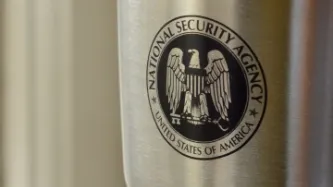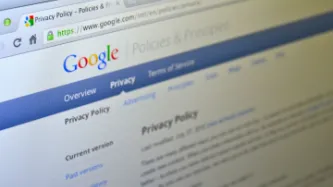Search
Content type: Examples
A student in Minneapolis was outed when their parents were contacted by school administrators when surveillance software found LGBTQ keywords in their writing on a school-supplied laptop. The risk of many more such cases is increasing as the use of edtech spread, fuelled by the pandemic, and legislation, lawsuits, and pressure campaigns push schools to implement anti-LGBTQ policies. Software such as Gaggle, which surveils school computers and student accounts, constantly monitors students…
Content type: Examples
Contact tracing apps will only work effectively if people trust them and install them in sufficient numbers. Soon after its launch, however, the North Dakota contact tracing app people were already dropping it after posting complaints in the Google App store. In a survey of 798 Americans, researchers at Microsoft Research, Johns Hopkins University, and the University of Zurich found that nearly half said they would not install a COVID-19 contact tracing app that has false negatives or could…
Content type: Long Read
During the last World Economic Forum in Davos, the CEO of Microsoft joined the chorus of voices calling for new global privacy rules, saying the following in regard to the new European General Data Protection Regulation (GDPR):
“My own point of view is that it's a fantastic start in treating privacy as a human right. I hope that in the United States we do something similar, and that the world converges on a common standard."
We have come a long way. From tech companies fighting and…
Content type: Long Read
This piece originally appeared here.
On both sides of the Atlantic, we are witnessing the dramatic expansion of government hacking powers. In the United States, a proposed amendment to Rule 41 of the Federal Rules of Criminal Procedure would permit the government to obtain a warrant, in certain circumstances, to hack unspecified numbers of electronic devices anywhere in the world. Meanwhile, across the pond, the British Parliament is currently debating the Investigatory…
Content type: News & Analysis
We already know that in some countries, like the UK, governments are drafting laws to legalise and legitimise their incredible surveillance powers. In the U.S. we are seeing legislation that is using remarkably similar language on encryption and surveillance. The next phase of the cryptowars has openly begun.
Yesterday what is being called the Feinstein-Burr decryption Bill was introduced into the US Senate and leaked online. Whilst the short title ‘Compliance with Court Orders…
Content type: News & Analysis
According to Snowden documents analysed by Privacy International, the Australian Signals Directorate had access to and used PRISM, a secret US National Security Agency program which provides access to user data held by Google, Facebook and Microsoft.
This is the third spy agency of the 'Five Eyes' alliance confirmed to have had secret access to Silicon Valley company data - an alliance whose rules and policies remain classified. Earlier this year, a British court ruled that GCHQ access to…
Content type: News & Analysis
Privacy International, Bytes for All and other human rights groups are celebrating a major victory against the Five Eyes today as the UK surveillance tribunal rules that GCHQ acted unlawfully in accessing millions of private communications collected by the NSA up until December 2014.
Today’s judgement represents a monumental leap forward in efforts to make intelligence agencies such as GCHQ and NSA accountable to the millions of individuals whose privacy they have violated.
The…
Content type: Press release
British intelligence services acted unlawfully in accessing millions of people’s personal communications collected by the NSA, the Investigatory Powers Tribunal ruled today. The decision marks the first time that the Tribunal, the only UK court empowered to oversee GHCQ, MI5 and MI6, has ever ruled against the intelligence and security services in its 15 year history.
The Tribunal declared that intelligence sharing between the United States and the…
Content type: News & Analysis
A strong, unified voice from the tech industry is absolutely essential to reforming the mass and intrusive surveillance programs being run by the Five Eyes, so we welcome today's statement from AOL, Apple, Google, Facebook, LinkedIn, Microsoft, Twitter, and Yahoo.
Companies have obligations to respect human rights and not be complicit in mass surveillance. Given what has been publicly revealed over the past six months, we must know for certain that the companies we entrust with our information…
Content type: News & Analysis
It was a throwaway line in a Washington Post article, one of the many stories about government surveillance in the past few months.
By September 2004, a new NSA technique enabled the agency to find cellphones even when they were turned off. [Joint Special Operations Command] troops called this “The Find,” and it gave them thousands of new targets, including members of a burgeoning al-Qaeda-sponsored insurgency in Iraq, according to members of the unit."
Being able to track a mobile phone,…
Content type: Press release
Privacy International today has filed formal complaints with the Organisation for Economic Cooperation and Development (OECD) in the UK against some of the world’s leading telecommunication companies, for providing assistance to British spy agency GCHQ in the mass interception of internet and telephone traffic passing through undersea fibre optic cables.
According to recent reports, BT, Verizon Enterprise, Vodafone Cable, Viatel, Level 3, and Interoute granted access to their fibre optic…
Content type: Press release
Transparency reports have traditionally played a critical role in informing the public on the lawful access requests made by governments to companies like Facebook. These reports have provided a useful accountability mechanism for users to know what governments are asking for and how often. Transparency reports also inform users as to what intermediaries are doing to protect their privacy when it comes to sharing data with governments. Given Facebook's ever-growing presence in the lives of…
Content type: News & Analysis
Below is an excerpt of an article that recently appeared in Melbourne, Australia's The Age, written by Carly Nyst, Head of International Advocacy at Privacy International:
"Mass surveillance of a country's citizens by its government can no longer be said to be the preserve of authoritarian and dictatorial states.
The publication last week by The Guardian of classified National Security Agency documents has exposed the extent of surveillance by the US government, throwing into question…
Content type: News & Analysis
UPDATE: The Guardian has just reported that "The UK's electronic eavesdropping and security agency, GCHQ, has been secretly gathering intelligence from the world's biggest internet companies through a covertly run operation set up by America's top spy agency."
This recent news reveals a long-held suspicion that the GCHQ had the very powers they were seeking to place on a statutory footing with the Snooper Charter, a bill that was knocked back for being unnecessary and…
Content type: News & Analysis
Tuesday’s letter to Google CEO Larry Page, personally signed by 29 European data protection authorities, ordered the corporation (inter alia) to give users greater control over their personal information. The notions of trust and control are emphasised throughout the letter, and Google is urged to "…develop new tools to give users more control over their personal data" and "collect explicit consent for the combination of data for certain purposes". It is good news that the…
Content type: News & Analysis
APEC privacy activity has passed another milestone with the acceptance in July 2012 of the USA as the first economy to formally join the cross border privacy rules (CBPR) system. The CBPR Joint Oversight Panel (JOP), with the Canadian chair of the Data Privacy Subgroup (DPS) standing in for the US member in accordance with the ‘no conflict of interest’ provisions, accepted the US government application, which nominated the Federal Trade Commission (FTC) as the privacy enforcement authority…
Content type: News & Analysis
The recent acquisition of Skype by Microsoft, coupled with a series of infrastructural changes, has resulted in a flurry of responses, concerns and analysis of exactly what kind of assistance Skype can provide to law enforcement agencies. Under this heightened scrutiny, Skype released a statement on their blog on 26th July, purporting to re-affirm their commitment to the privacy of their users.
Privacy International are delighted to read that Skype believes that…
Content type: News & Analysis
Last month, within thirty seconds of the BBC publishing a quotation from me on the latest round of the nymwars and Google+, my phone rang. Caller ID indicated that it was someone I know who works at Google. "Had I said something wrong?" was my first thought. I quickly retraced in my mind what it was that I had said to the journalist; I had responded in the article that Google's recent announcement could be seen as positive but really it was a sidestepping of the larger challenge of identity…
Content type: News & Analysis
Independent security researcher Trevor Eckhart revealed yesterday that a recent software update to some HTC smartphones has accidentally given third party applications access to huge amounts of private data, including call logs, geolocation history, SMS data and a whole lot more.
The update surreptitiously installs a suite of applications logging users' interactions with their devices. When a device is first switched on, the user ostensibly has the option not to allow HTC to…











